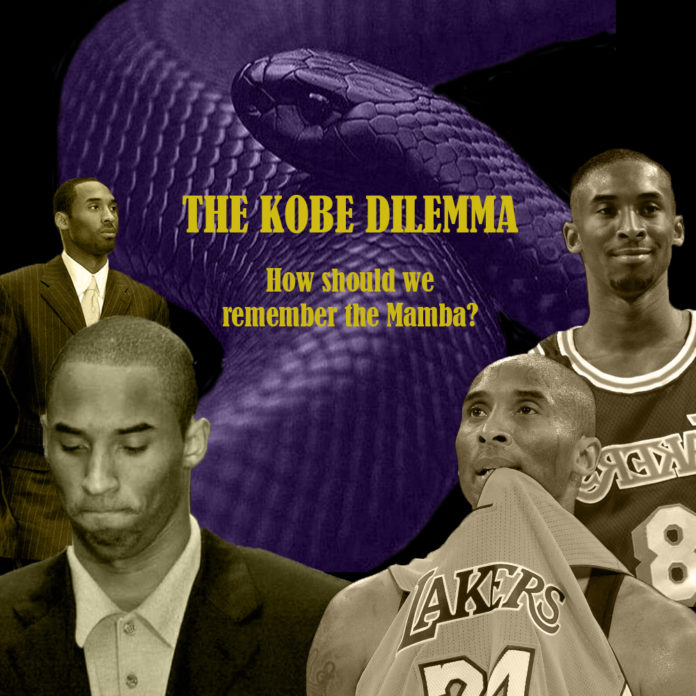Trigger Warning: Sexual Assault
In 2003, Kobe Bryant was charged with one count of felony sexual assault following an alleged rape of a 19-year-old hotel employee in Edwards, Colorado.
As a journalist, I’ve learned that what you choose to write about is as important as what you don’t. In the wake of Kobe’s tragic passing, I’ve been grappling with how exactly I should remember the Mamba.
The aftermath of such a shocking and sudden tragedy is often met with complex, indecipherable emotion. Having talked to many of my friends and lifelong residents of Southern California, I know many of them feel the same way.
In the midst of sorting through the sorrow, grappling with the loss of life and reading about the impact Kobe had on the world, I couldn’t shake the feeling of guilt. I knew about Kobe’s history with sexual assault; I knew his celebrity status protected him; I knew that if the justice system was equipped to bring justice for survivors, Kobe likely would never have graced the court again after 2003.
In trying to be both an ally and honor a man who inspired so many, I felt trapped, unable to do both at the same time. In my conversations with friends regarding Kobe’s passing, I had been advised not to touch the subject, and if I did, to talk about how he was able to salvage his reputation all these years later.
It would be more convenient not to talk about it. It would be easier to cry and mourn freely, with no inhibitions, thinking only about the light he brought into this world.
But that would be wrong.
Too many survivors don’t have the luxury not to think about their history with sexual assault. We have to talk about it, and we have no one to blame but Kobe.
Once I decided to write this piece, I thought it would bring me some sense of closure about my own emotions — it only opened a larger Pandora’s box of questions.
Does it matter that in Kobe’s apology to the young woman and her family, he admits he understood that the encounter was not consensual?
Does it matter that Kobe was a champion of female athletes? That he gave love and respect for the often disrespected women of the WNBA? That he not only showed up with his words but in person for the World Champion U.S. women’s national team? That he said just a week before his passing that women have the skill and ability to make it in the NBA?
Does it matter that Kobe was an exemplary father to his daughters? That his love for them was so visible and visceral that he flew helicopters all around Southern California to be able to spend more time with them?
Yes. All of this matters. We should remember and celebrate Kobe for all of this. We should take his apology as more evidence to believe and support survivors. We should follow his lead in giving female athletes their due respect and coverage. We should emulate his commitment to fatherhood and his devotion to his daughters.
But it doesn’t excuse his actions, and we shouldn’t forget the grave mistake he made.
I will remember Kobe as a legend, a hero, a father and a champion. However, I will also remember him as someone who got away with a heinous crime. I wish I didn’t have to remember the latter, but there is no one to blame for this but Kobe.
After he retired from basketball in 2016, Kobe became a storyteller. I think the words of another storyteller, F. Scott Fitzgerald, sum up how I will move forward with my memories of the Mamba.
“The test of a first-rate intelligence is the ability to hold two opposed ideas in mind at the same time and still retain the ability to function.”
———
Oxy 24/7 Confidential Hotline: (323) 341-4141
Survivor Advocate: (323) 259-1359
Map of Project S.A.F.E./Survivor Advocate office location
![]()































